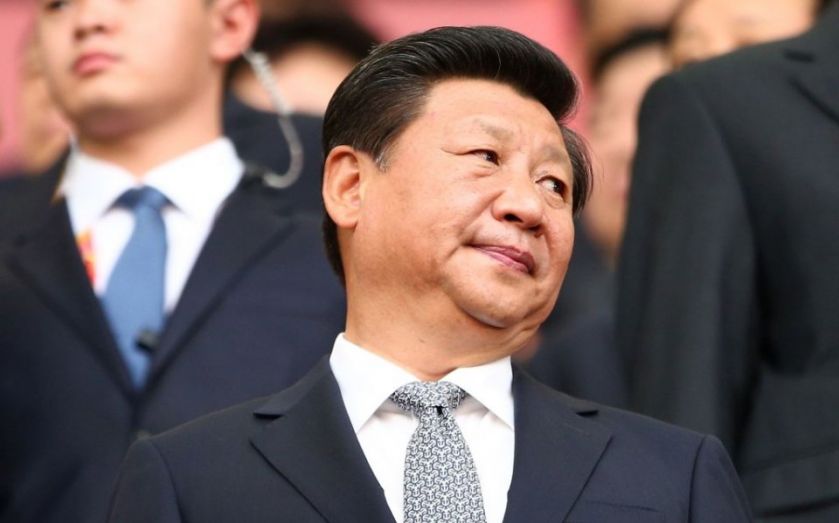China may have stumbled – but the UK still has much to gain from closer links

Next month, there is an immensely important event on the diplomatic calendar. The Chinese President Xi Jinping will pay us a state visit and, as a result, the eyes of over 1bn people will be on us.
I for one relish the prospect – it’s an opportunity for the City to pull out all the stops, hoist the flag, and host a banquet in his honour. When I sit next to the President, we will talk about all the many ways that our two countries might draw closer together.
The run-up to the President’s visit, however, is no less significant. This week I’m in China, talking to companies and organisations from both the UK and China, exploring the possibilities for growth thrown up by our strengthening relationship.
These conversations will be pretty wide ranging – capital markets, insurance, maritime, and the internationalisation of the RMB will all be on the table.
There is, however, another reason why it is apt to visit China now. You would need to be living under a rock to have missed the turbulence in the Chinese economy at the moment.
The famous expression that, when the US economy sneezed, the world caught a cold now applies to China in equal measure. We are all pondering how exposed we are to global economic fluctuations.
Actually being there in person will give me a greater insight into what is going on and the implications for all of us.
My view is that the current volatility is down to the fact that the Chinese market is still, in comparison to other markets, quite young. Experiencing these difficult periods helps to build long-term institutions that can absorb shocks and withstand such periods of volatility.
Some segments of the insurance and pension industry take 30 year views with their investments so would not be so exposed to what we have seen going on. The City’s experience in these situations is something I want to share with my Chinese counterparts.
One lesson from all of this is that we need to work twice as hard to build commercial links. China is our second biggest source of imports while our exports there have tripled since 2007. The bread and butter of the City, the services sector, accounts for just under one-third of this – £3bn per year.
We have also worked hard over the years to forge a positive relationship in the international development of the RMB. The creation of a clearing bank, signing of a bilateral swap line, and issue of the first non-Chinese sovereign RMB bond all demonstrate this.
Equally, our government’s endorsement of the China-initiated Asian Infrastructure Investment Bank, backed by the City, is further evidence.
With China adapting to the “New Normal”, companies need to be bold, accept this is reduced growth in an enormous market, but recognise that some new opportunities are emerging. If we are to compete on the global stage, we need to be bold even when it looks like a risky strategy.
Key components of China’s economy, like the One Belt, One Road strategy, will unlock untapped potential in a vast array of sectors. It’s up to us to capitalise on them.